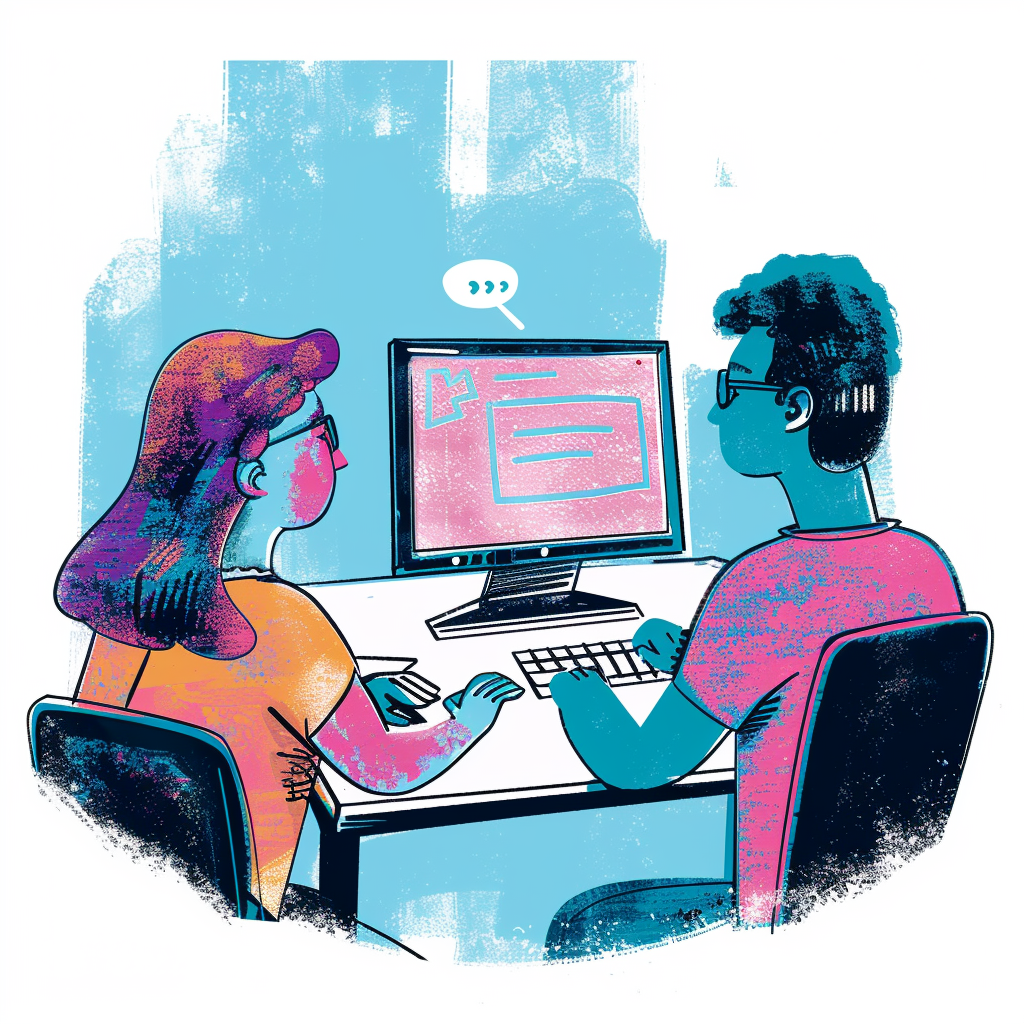Have you ever misinterpreted someone's tone in a text message, or witnessed a heated exchange in the comments section that made you never want to interact with people online? Well, you're not alone. When we're constantly connected but physically distant, it's so easy to forget there's a real person at the other end of your communication. That's where digital empathy comes in, and I think it's high time we gave it a proper look.
I've had my fair share of online faux pas, and I've learned a thing or two along the way. In an earlier revision of this blog post I listed my top five worst online communication disasters, but sorry - they're just too embarrassing to share. The only thing I'll say is: Adrian, I'm really sorry and I hope you've forgiven me.
What is digital empathy?
Digital empathy is all about understanding and sharing the feelings of others in online spaces. It's about remembering that behind every username and avatar is a living, breathing human with their own thoughts, feelings, and experiences. Sounds easy? But we all forget it from time to time.
I'll give one example from my recent life. I'd spent hours and hours planning a day out with friends, booking a rental car and snapping up tickets for an excursion before they all sold out. A few days later one friend made an offhand comment asking if we could swap to a different activity. It was a simple question, but it made me instantly angry because it felt like they didn't appreciate all the hard work that I'd put into organising the trip. Feeling like I'm being taken for granted is a big trigger for me at the moment: I'm working on it, no one's perfect.
My immediate reaction was to write back something aggressive and sarcastic like "Why don't you plan the next trip then?" except in all caps and more swearing. But I took a second to think before replying. I acknowledged that they were just asking a question, that we're good friends, that messages can seem abrupt and sometimes rude, and that if we were having the conversation face-to-face they would be smiling and friendly. So I took half an hour to focus on something else and calm down before I replied in a friendly way that there weren't any tickets available for the activity they wanted to do.
This is digital empathy - acknowledging that communication is very different online to IRL, and making allowances for it.
So, how can we build this kind of empathy and create a more positive online environment? I've got a few ideas I'd love to share with you.
Context is everything
First, let's talk about the importance of context. When I'm reading my messages or scrolling through comments online, it's easy to take things at face value. But I'm missing out on all those non-verbal cues that I'd normally pick up in face-to-face conversations. So I try to take a step back and consider the bigger picture. What's the context of the conversation? What might be going on in that person's life that I don't know about? Maybe they're having a terrible day and they're generally upset, not specifically at me. Maybe they're not angry at all, I could just be reading that into their message. Maybe I'm the angry one and I need to do something else for a bit before I reply.
Choosing the right words (and emoji)
Next up, let's talk about the power of words. Online, our words are often all we have to express ourselves. So it's crucial to choose them wisely. Before hitting send, I always try to ask myself, "How would I feel if someone said this to me?" It's a simple trick (when I remember to do it) but it works wonders in fostering more empathetic communication. Often I'll re-read what I'm about to send and realise that it could be interpreted as too harsh. An easy way to soften that is by sprinkling emoji liberally through the text. My current favourites are 🌈 🥰 â¤ï¸ and🔥.
But this brings its own problems, especially for women. Women in the workplace often use softer language to avoid coming across as overly assertive or bossy. Phrases like "I’m no expert in this, but” and “I kind of think” can undermine what she says next, and as a result her (usually male) colleagues don't take her opinions seriously.
I recently had a conversation with a female friend about this. She said:
I feel that there is a social pressure, especially for women, to use exclamation points and emojis to add a "friendly tone" to their communications. For some reason, if only periods are used, the tone comes off as brusque rather than what the tone is intended to be: neutral. Email communications from men rarely, if ever, are seen to include exclamation marks, yet those from women feature them much more heavily. I once saw a documentary that said the perception of women who don't use exclamation points leans more towards rudeness; however, the perception of using too many exclamation points gives the impression that the writer lacks professionalism. I find this to be a huge double standard, and therefore, I have since made an effort to reduce my usage of exclamation points and emojis when conveying a message that is neutral. I'm happy to use them when I wish to express emotion and excitement. However, if the message is neutral, I don't feel I should be obliged to use anything other than equally neutral punctuation.
On a related note, I acknowledge my privilege that, as a man working in IT, people take me seriously whatever I say. I've lost count of the number of times I've had to repeat things that my wife Kat says, just so the men in the room actually hear her point. Now that makes me angry, but it's the topic of a future blog post.
Active listening
The most useful skill that I've learned from the counselling courses that I've taken is active listening. Or in this case, active reading. When engaging in online discussions, I try to really understand what the other person is saying before formulating a response. It's not about winning an argument: it's about having a meaningful exchange of ideas.
Now, I know it's easier said than done, especially when we come across views that are poles apart from our own. But that's where the real opportunity lies. Instead of immediately dismissing or attacking differing opinions, I try to understand where they're coming from. I don't have to agree, but a bit of empathy can go a long way in fostering respectful dialogue.
Be curious, not judgmental
If you've ever seen Ted Lasso, you'll remember the darts game where he reminds his opponent to "be curious, not judgmental". This applies to all communication, but especially online. It's so easy to jump to conclusions about what other people say and do. But if you approach your interactions with curiosity instead of judging people, you'll get a chance to learn something new rather than just reinforcing your existing opinions.
And if you've never seen Ted Lasso you should stop reading this blog and start watching it right now, it's easily my favourite TV series ever.
Voice notes
Voice notes are a strange one - they're a really useful way to convey emotion and nuance if you need to communicate a delicate point. But a lot of people find frequent or long messages quite inconsiderate because you might be forcing the recipient to spend a couple of minutes listening to a message that could have been written in just a couple of lines. So try to keep them for special occasions and try to keep them short. In addition, you can't search your chat history for words in voice notes, so don't send things like addresses in this way.
Take a break
Finally, remember that it's okay to take a breather. If you find yourself getting wound up by an online interaction, step away from the screen for a bit. A cup of camomile tea and a biscuit or five can work wonders for gaining perspective. You don't have to respond immediately to any messages you receive: think of them as invitations to connect instead of demands for attention.
In summary
Building digital empathy can be a real challenge, but it's absolutely worth the effort. By fostering more positive online interactions, we can create a digital world that's a bit more understanding, a bit more compassionate, and a whole lot more pleasant for everyone. What do you think? Shall we give it a go together? And sorry again, Adrian.


